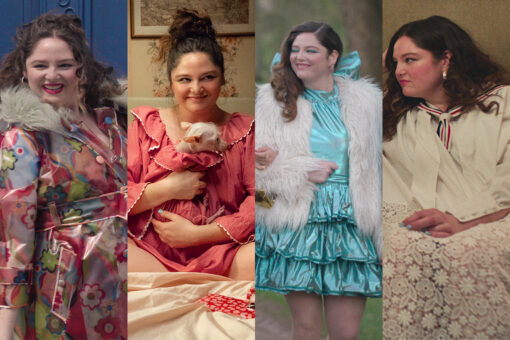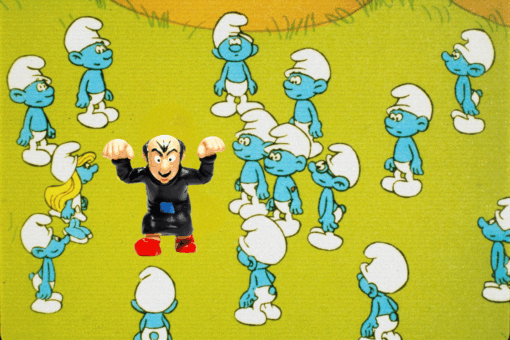On December 31, I went to bed exhausted from work with a knot in my stomach, dreading what my January might look like. I had done the Pinterest vision board and written my hopes and dreams for the new year, and while I was a little apprehensive, I felt hopeful. After Rosh Hashanah, my Jewish new year had gotten off to a rocky start, but one of the best parts about being Jewish is getting two chances at a fresh start each year. I woke up hopeful that this year, things would be right.
Then my relationship ended. The dread I went to bed with was my preemptive broken heart speaking to me about what was to come. I loved my partner so much it hurt sometimes, and the last two years had been filled with some of the best moments of my life. At the same time, I knew that I was not the best version of myself and that our relationship had morphed into something ugly. I had so desperately hoped that this year would be different for us, that I could leave my doubts in December, but they followed and I had to make a choice.
This one just sucked.
I’d gone through particularly painful breakups before, but this one left me feeling listless and dejected. In the past I had employed certain cliched methods of getting over a breakup, i.e. eating nothing but takeout for two weeks and playing Mitski’s “Nobody” on repeat for days on end. But this time was different. It felt permanent and I knew there was no coming back from it. A large part of my life died, and I had no idea what to do.
So I turned to Judaism.
Judaism has many beautiful mourning practices, from sitting shiva to reciting the Mourner’s Kaddish. But I wasn’t exactly mourning. I was three days into the secular new year and I already felt like I needed to start over, but I couldn’t wait until the next Rosh Hashanah. I felt like my year had already been soiled — until I turned to the magic of the mikveh.
Usually employed by observant married women to mark the end of their menstrual cycle, a mikveh is a pool in which immersion is used to restore ritual purity. It is also used by converts to reunite them with their Jewish neshama (soul) and mark the start of their new life.
Over the past few years, as I became more observant, I looked forward to the integration of the mikveh into my Jewish practice, but I wasn’t sure what that would look like for me. I’m an unmarried young woman and I’m not obligated to partake in ritual purification until I’m married (if I choose to do so) but something about the mikveh called to me.
In turn, I called my rabbi. I asked if it would be permissible to use the mikveh for personal prayer, and after getting the green light, I scheduled my appointment.
Before I reached this moment, I had talked to my rabbi about mikveh use in my future. We had discussed my interest in eventually following Taharat Ha-Mishpacha (Jewish family purity laws) and how connected I felt to the mikveh, but also the anxiety I had when it would eventually come to telling a partner that’s what I wanted to do.
There aren’t any established traditions of using the mikveh to get over something like a breakup, but my rabbi was open to it, especially since otherwise, I would have to wait until marriage to begin regular use. My rabbi understood my need for a rebirth of sorts. I had read Aryeh Kaplan’s book “Waters of Eden: The Mystery of the Mikvah,” in which he likens mikveh immersion as a rebirth or a total change of status, which is exactly what I was looking for.
Even before I got to the mikveh, there was something so refreshing about taking the time to prepare. Washing my hair, clipping my fingernails and checking for last minute chatzitzah (anything that would come between my body and the water) left me feeling excited and more than a little hopeful. I felt I was holding on to so much that I wanted to let go of. Making sure my hair and nails were squeaky clean and exfoliating made me feel like I was getting clean beyond just the obvious physical, but the many emotions that accompanied me post breakup.
When I arrived at the mikveh, it was raining, which felt rather fitting for the occasion. The attendant welcomed me and unlocked the preparation room and left me to get ready.
Sitting at the vanity, doing one last check and removing my jewelry, I noticed a framed quote sitting beside the mirror. Titled “The Magic of the Mikveh,” it read: “Perhaps the most widely known of all Hebrew words is Shalom. The Hebrew word for peace, ‘shalom,’ comes from the root shalem, meaning whole or complete. This then is the magic of the mikveh. It can restore balance, harmony and completeness into our lives.”
With these words in my heart, I stepped into the pool and became weightless, physically but also spiritually, like a heavy burden was lifting off of me. Floating there in those holy waters, I found peace not just with how my relationship ended, but with much of what had happened over the past year. My frustrations, anxieties and hurt all melted away as I said the Shehecheyanu (prayer for special occasions). With every full immersion and resulting blessing, I was reminded that second chances are something I can give myself at any time.



